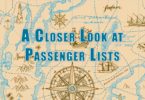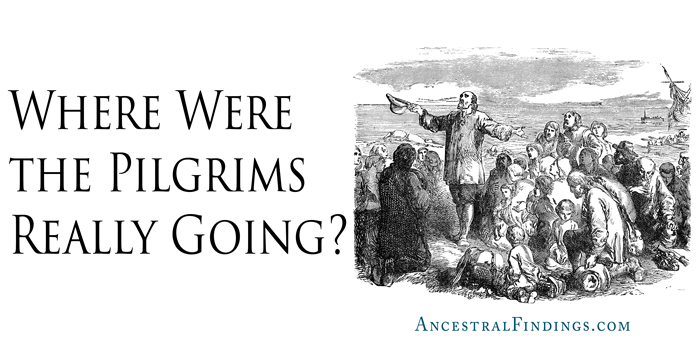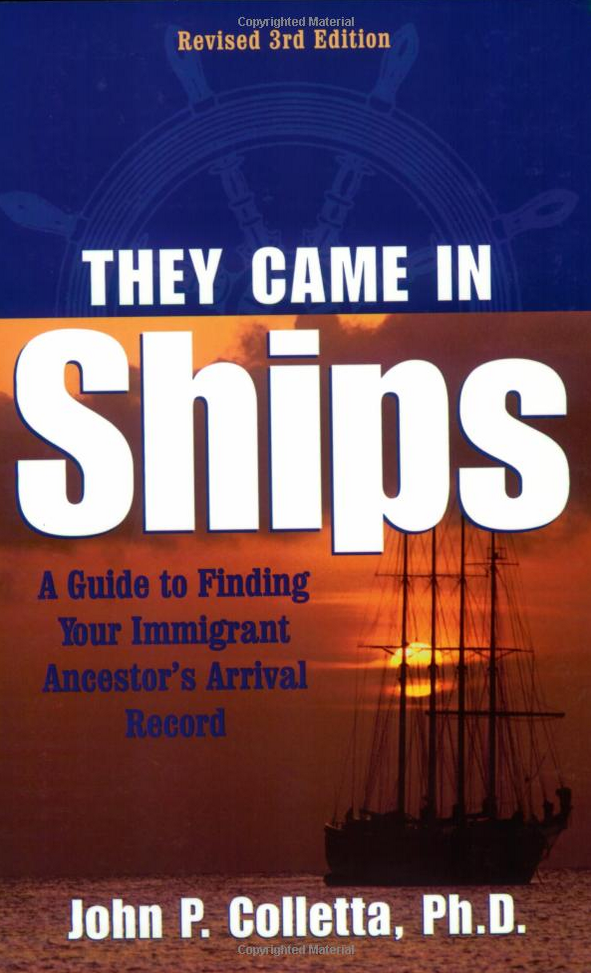Most Americans have ancestors who came here from other countries unless your ancestry is one hundred percent Native American. Since the airplane wasn’t invented until 1903, and commercial air travel for civilians was not common until the 1940s and 1950s, that means most immigrant ancestors will have come to the United States on ships. This is actually good news when searching for information on your immigrant ancestors because ship records have traditionally been meticulously kept and preserved by both the countries the ships sailed from and the ones they sailed to. These ship records can potentially provide you with a treasure trove of interesting genealogical information on your immigrant ancestors.
Why did countries keep such careful records about the ships that entered and left their ports? It was important to keep track of a ship’s service record, so it could better be determined when it needed routine maintenance or should be decommissioned. Ownership of the ships could be traced and proven if required. The records of the goods the ships were carrying were important for merchants, as well as for local and national governments for taxation purposes. The records of the people who traveled on the ships allowed citizens to better be kept track of, which was useful in case the government or (less often) a relative or friend wanted or needed to find them. As you can see, there were plenty of good reasons to keep track of the ships coming to or going from any nation. This was true even in ancient times.
A Brief History of Ocean Travel by Human Beings
Sea travel has been a primary mode of international travel and exploring by human beings for thousands of years. There is evidence of ocean voyages by certain civilizations going back into antiquity, long before written records of anything were kept. The evidence for this is archaeological. Yes, people did immigrate by land and often did, but they also immigrated by sea. There are several ancient civilizations that are particularly noted for their sea-faring ways. It seems that as soon as people discovered that they could build vessels that would carry them across the water, they did so with enthusiasm, experimenting with longer and more ambitious voyages.
As an example, we now know that the Vikings traveled to North America nearly five hundred years before Christopher Columbus did. The evidence of that is pretty definitive by now, and few historians question it. If the Vikings came to North America so early on in the age of known European ocean exploration, who knows who might have come before them? Some historians claim there is evidence of Polynesian and Asian travel over the Pacific Ocean to the west coast of North America thousands of years before the Vikings. If voyages like that could be made in primitive times such as those, they could be done at virtually any point in human history.
People have traveled by sea to begin new lives in new places for almost as long as there have been humans. Passenger records, once they started to be kept, can tell you a wealth of information about your immigrant ancestors.
Locating the Point of Origin of Your Immigrant Ancestor
The first thing you need to do when looking for your immigrant ancestor is to discover where they lived before they came to the United States. At a minimum, you need their country of birth. The more you can narrow down the place of birth, the better. Many nations that sent immigrants to the United States had several ports of departure for ships, so knowing your ancestor’s county, province, city, or town will be extremely helpful in locating the name of the ship they took to their new life in their new country.
If you do not have this information, do some genealogical research online or at your local genealogical library to get as much information on this ancestor as you can. It really does pay to be equipped with this information when looking for the ship they sailed on to the United States. It will save you a lot of time and effort in searching through ships from the time period. With a more approximate location for your ancestor’s point of origin, you will be able to start your search for a ship’s name with the nearest port to their home. Without it, you will have to search through all of the ships manifests from that country that left for the United States during the approximate time your ancestor immigrated.
While your ancestor may have departed for the United States from a location far away from their actual home, and sometimes this is true for a variety of reasons, you have the best chance of quickly finding the name of the ship if you know the name of the local region, province, county, city, or town from which your ancestor originated. You will also have far fewer ships to look through to potentially find your ancestor’s ship.
Look through any documents you can find to narrow down the point of origin for your immigrant ancestor. US census records, probate records and wills, property records, birth records for their American-born children, death certificates, marriage records, church records (such as baptismal records), military records, employment records, and old newspaper records are all excellent sources for potentially finding a more specific and narrowed down the place of birth for your immigrant ancestor. Once you know their place of birth, you can start looking at records of ships that sailed to America from the nearest port to the place they lived. If they are not there, then you can look at ship manifests from ships coming to the United States from nearby ports, all the ports of their home country, and even ports from other countries (many Irish immigrants, for example, departed for the United States from ports in England). Locating the ship your ancestor sailed on all starts with knowing where they lived before they came to this country.



